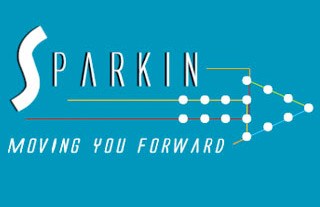Humor and Building Brands
Done well, humor eases communication and connects people. Done badly, it does the opposite. So how should brands use it? Clearly, with care. But what rules and guidelines exist?
Paramount is knowing if and when humor is an option. Some brands should avoid humor altogether. Others might effectively deploy it just occasionally. Key is understanding the brands’ values as well as how the audience relates to and interacts with the brand. Category and cultural context are also important considerations.
Humor is a relatively high risk communications strategy which begs the question, ‘What is the communication’ designed to achieve? There might be a more optimal path.
The attached links may help answer some of these questions and if nothing else provide greater clarity. Enjoy!
Stuart
PS. Please let me have your ideas on areas you would like to be covered.
Articles and commentary that might be of interest…
How To Use Humor To Power Up Your Content Marketing
Funnycontentmarketing
#MarketingHumor #FunnyBrands #FunnyAds
Jokes Aside: The Very Serious Business Of Adding Humor To The Marketing Mix
Knock Knock It’s Roi – How To Use Humor Psychology In Marketing
The Dangerous Art Of Using Humor In Marketing
Lol Content: Friend Or Foe? 10 Examples Of Humor In Marketing
‘Unique’ Candidate Raincheck
Some candidates believe when compared to others, like the glowing waves. what they have to offer is quite unique.
What can enhance the chances of this being true is something regularly practiced by the best candidates, who always seek feedback after interviews/They always seek to improve.
Really smart candidates learn from the new found knowledge and adapt.
The smartest candidates of all, (who always end up with serious consideration, if not the job) know that even when they apply the lessons of the past and do everything they can and what they offer is very differentiated, sometimes still, they won’t be hired!
They know that this is not because they did anything wrong but because every opportunity is unique, (just like them) and simply, in some cases there was an even better ‘unique’ fit for the role.
Following The Money Often Reveals The True Story
Aspiring job seekers, don’t be dazzled by the scenery! Save yourself from a bad job move and get to the reality of what a business actually does sooner rather than later. Inspiring recruiters may tell you what an employer aspires to be, about the new this or the new that division they are going to build which is great. But, you need the reality of what the experience is now. So the questions that get you closer to the truth orient around where your future employer ‘actually makes’ the bulk of its cash from versus where it ‘wants’ to make money. #SmartCareerMoves
Integrated Thinking and Polymaths?
More than ever, the agency world values integrated thinking; It needs creative polymaths
Think Da Vinci, Gallileo and Jobs, all polymaths or, ‘someone who has great and varied learning over complex bodies of knowledge…who can also solve complex tasks’.
Great creative strategists do this. With experience and vision beyond silos – not quantitative or qualitative approaches, digital or analogue, science or the arts – they bring together disparate ideas in new and exciting ways.
As ‘knowledge’ becomes cheap and accessible to all at the click of a button, inventive synthesis will be key. This skill will propel careers and push us up the value chain. Some find it innately but we can all improve.
The attached links may reveal something about the person you are, could or need to be.
Enjoy!
Stuart
Articles and commentary that might be of interest…
- Hidden talents – are you a polymath?
- Six Extremely Unique and Purpose Driven Polymaths
- Creative people’s brains really do work differently
- Talking Product & Polymaths with boomtrain’s CTO & Co-Founder
- How Creative Polymaths are Influencing Luxury Brands
- Why High-Skilled Freelancers Are Leaving Corporate Life Behind
- Where are the polymaths hiding?
- PR is not enough: we must all become polymaths to thrive
- Why 21st-Century Economy Needs More Polymaths
- Future of Work and Multipotentialites
Purpose Driven Brands and Strategy
The reason why anyone talks about next career steps is because of growth or a lack of it.
What is typically sought includes more: Variety, autonomy, leadership opportunity or most obvious, the opportunity to develop strategic skills and experience.
Daily conversations for me invariably arrive at the subject of meaningfulness or, business and brand purpose. Yes, it’s not just a millennial thing!
Your peers are increasingly seeking to use their strategic problem solving smarts in areas, on causes and with brands that promote experiences that have a positive impact on people and the world at large.
There are some amazing companies out there whose mission is not growth and profitability for the sake of growth and profitability. There are entities that want to do much more….
The attached links are a few examples that you might be interested in.
Enjoy!
Stuart
So What Makes a ‘trusted advisor?’










